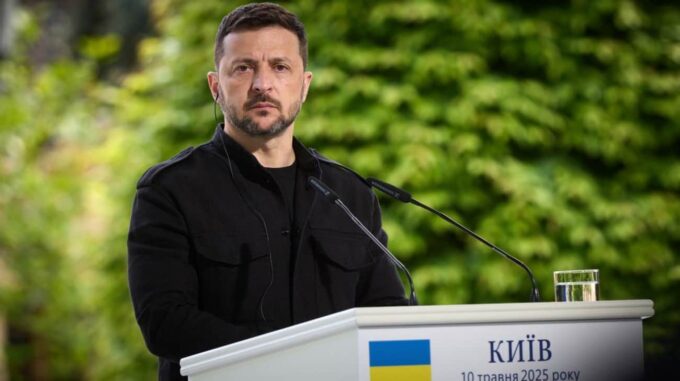Zelensky announced to Trump his readiness for direct negotiations with the Russian Federation on the condition of a 30-day ceasefire

In the context of the tense situation surrounding the war in Ukraine and active diplomatic efforts to find a cessation of hostilities, President Volodymyr Zelensky held a phone conversation with U.S. President Donald Trump, during which he openly stated his willingness to engage in direct negotiations with Russia. However, the Ukrainian leader emphasized that for any dialogue to begin, Moscow must agree to an unconditional 30-day ceasefire, which became a crucial factor in bilateral agreements. According to Axios, citing two sources involved in the 15-minute conversation, Zelensky was the one who proposed this idea to his American colleague during the discussion. Additionally, Ukrainian and European leaders stressed to Trump that, upon agreeing with Russia and establishing effective international monitoring of the truce, Kyiv is ready to immediately move to the next stage – launching direct negotiation processes with Moscow. It is important to note that Ukrainian representatives during the conversation also assured that Kyiv is ready to temporarily cease hostilities on land, in the air, and at sea starting Monday, May 12. According to interlocutors, this could create conditions for initiating constructive dialogue and searching for a long-term resolution to the conflict. To achieve this, intergovernmental monitoring and control by international organizations must function flawlessly, ensuring compliance with the agreements. Meanwhile, leaders from European countries also emphasized to Trump that if Russia refuses the agreed 30-day ceasefire, Western countries are prepared to impose additional sanctions on Moscow, increasing economic pressure on the Kremlin. According to sources, the U.S. president appeared to be satisfied with this development. He was pleased that Ukraine and its allies agreed to a ceasefire and direct negotiations with Russia, aligning with his diplomatic initiatives. Reflecting on past events, it should be noted that amid the crisis in diplomatic relations, Zelensky, along with leaders of Germany, France, Poland, and the United Kingdom, conducted a phone briefing with Trump. Earlier this week, the American president called for an immediate 30-day ceasefire and threatened sanctions against any party that refused this compromise. These discussions are taking place against the backdrop of objective circumstances: the Kremlin is currently refraining from official responses regarding the dialogue proposals and is instead focusing on its internal politics and military operations. At the same time, former U.S. President Trump has previously expressed support for a three-day or thirty-week ceasefire, and his comments on falling oil prices and Russia's strengthening position in the international context indicate a desire to find a compromise solution to reduce tensions and seek peace. At this stage, it is crucial that Ukraine’s and its allies’ positions are reflected in concrete actions and responses from Russia, as this will determine not only the possibility of ending hostilities but also the further course of the diplomatic process and the stabilization of the situation in the region.

